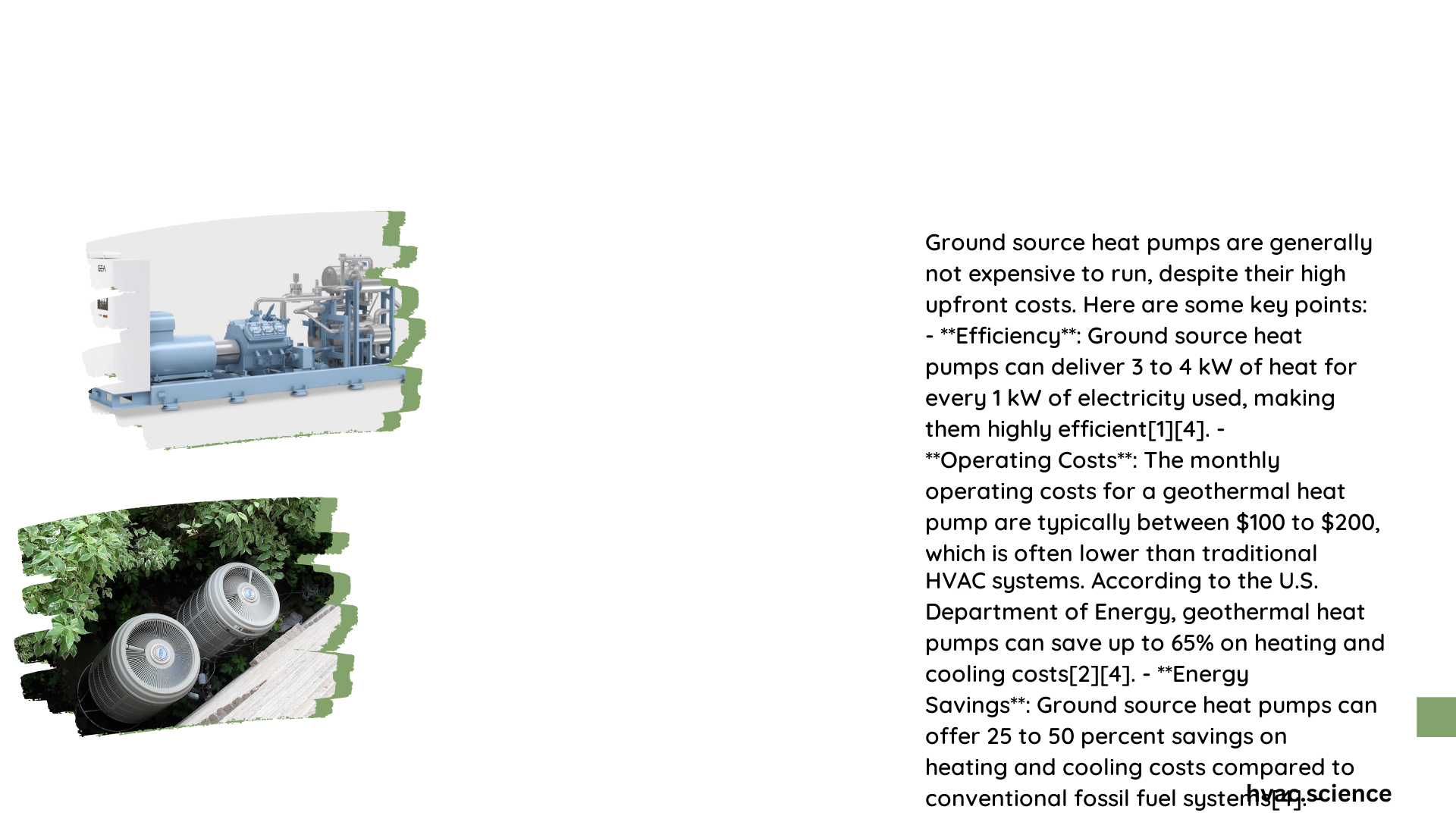Ground source heat pumps are often perceived as expensive to run due to high initial installation costs. However, they offer long-term energy efficiency and cost savings. This article explores the factors affecting running costs, maintenance expenses, and potential savings of ground source heat pumps compared to traditional heating systems.
Are Ground Source Heat Pumps Really Expensive to Run?
Ground source heat pumps (GSHPs) have gained attention as an eco-friendly heating solution, but concerns about their running costs persist. While the initial installation can be costly, ranging from $10,000 to $30,000, the long-term operational expenses are generally lower than traditional heating systems. Let’s delve into the factors that influence the running costs of GSHPs and determine if they are truly expensive to operate.
What Factors Contribute to Ground Source Heat Pump Running Costs?
Several key factors affect the running costs of ground source heat pumps:
- Electricity Consumption: GSHPs typically require around 2,244 kWh of electricity per year for an average UK home.
- Electricity Rates: The cost of electricity varies, but rates usually range from $0.12 to $0.20 per kWh.
- System Efficiency: GSHPs have high Coefficient of Performance (COP) values, typically between 3.0 and 4.0, meaning they deliver 3 to 4 kW of heat for every 1 kW of electricity consumed.
- Home Insulation: Well-insulated homes require less energy to heat, reducing overall running costs.
- Climate: While GSHPs maintain efficiency across various temperatures, extreme climates may impact performance slightly.
How Do Ground Source Heat Pump Running Costs Compare to Traditional Systems?
To understand if ground source heat pumps are expensive to run, let’s compare their costs to traditional heating systems:
| Heating System | Annual Running Cost (Approx.) | Energy Efficiency |
|---|---|---|
| Ground Source Heat Pump | $500 – $800 | 300-400% |
| Air Source Heat Pump | $700 – $1,000 | 200-300% |
| Gas Boiler | $800 – $1,200 | 90-95% |
| Oil Boiler | $1,000 – $1,500 | 85-90% |
| Electric Resistance Heating | $1,500 – $2,000 | 100% |
As the table shows, ground source heat pumps generally have lower annual running costs compared to traditional heating systems, despite their higher initial installation expenses.
What Are the Maintenance Costs for Ground Source Heat Pumps?
Maintenance is an important aspect of running costs. For ground source heat pumps:
- Service frequency is typically every 1-3 years
- Average service costs range from $150 to $300 per visit
- Common maintenance tasks include:
- Checking refrigerant levels
- Inspecting ground loops for damage or leaks
- Cleaning filters
These maintenance costs are relatively low compared to the frequent servicing required by gas or oil boilers.
How Much Can You Save with a Ground Source Heat Pump?
While ground source heat pumps have higher upfront costs, they offer significant long-term savings:
- Potential savings of 25% to 50% on heating and cooling costs compared to conventional systems
- Payback period typically between 5 to 10 years
- Long lifespan: ground arrays can last up to 100 years, indoor components around 15 years
To illustrate potential savings, consider this example:
- Annual heating cost with a gas boiler: $1,200
- Annual heating cost with a GSHP: $600
- Annual savings: $600
- Over 15 years: $9,000 in savings (not accounting for energy price increases)
Are There Any Financial Incentives for Installing Ground Source Heat Pumps?
Many countries offer incentives to offset the initial costs of ground source heat pumps:
- Government grants
- Tax credits
- Renewable energy incentives
These incentives can significantly reduce the payback period and make GSHPs more affordable to install.
What Factors Affect the Efficiency of Ground Source Heat Pumps?
Several factors influence the efficiency and, consequently, the running costs of ground source heat pumps:
- Proper sizing: An correctly sized system operates more efficiently.
- Ground loop design: Well-designed ground loops maximize heat transfer.
- Soil conditions: Certain soil types conduct heat better than others.
- Home insulation: Better insulation reduces heat loss and system workload.
- Thermostat settings: Optimal temperature settings can reduce energy consumption.
How Do Seasonal Changes Impact Ground Source Heat Pump Performance?
One advantage of ground source heat pumps is their consistent performance across seasons:
- Ground temperature remains relatively stable (10-12°C) year-round
- GSHPs maintain high efficiency even in cold weather
- Less affected by extreme temperatures compared to air source heat pumps
This stability contributes to more predictable running costs throughout the year.
Conclusion

While ground source heat pumps have high initial costs, they are not expensive to run in the long term. Their energy efficiency, low maintenance requirements, and potential for significant savings make them a cost-effective heating solution. When considering the lifetime costs and environmental benefits, ground source heat pumps prove to be an economical choice for many homeowners.
References:
1. Grand Designs Magazine – Heat Pump Costs
2. Kensa Heat Pumps – Cost Calculator
3. EnergySage – Geothermal Heat Pump Cost Breakdown
